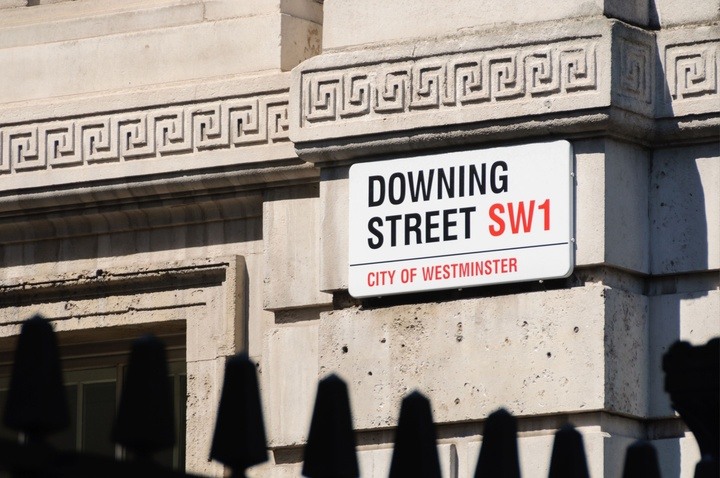Weekly Briefing: UK No Longer In Recession, Savills Update House Price Forecast & Tech Firms Invest £2 Billion Into The UK In A Single Week
This week, we delve into the better-than-expected GDP growth that has pulled the UK out of its shallow recession, big tech firms’ confidence in the UK as they pledge £2 billion of investment in a single week, and more.
UK Economy
UK Economy Exits Recession With Forecast-Beating GDP Increase
- Figures released by the Office for National Statistics (ONS) have revealed that the UK has exited last year’s technical recession in the first quarter of 2024.
- GDP grew by a better-than-expected 0.6% between January and March, the fastest quarter-on-quarter growth figure since 2021.
- The Bank of England (BoE) and economists polled by Reuters had predicted growth of 0.4%.
- The figure also represents the strongest growth among G7 countries with available data, ahead of the Eurozone’s 0.3% and the US’s 0.4% over the same period.
- Chancellor Jeremy Hunt stated the data is “proof that the economy is returning to full health for the first time since the pandemic.”
- Henry Cook, Economist at MUFG, said: “[The UK has] managed to navigate the energy crisis and period of rapid monetary tightening without experiencing a protracted downturn”.
UK Economy Registered Its Fastest Growth Since Q4 2021
 Source: ONS, LSEG via Financial Times
Source: ONS, LSEG via Financial Times
Global Economy
Eurozone Inflation To Fall Faster Than Expected
- The European Commission has stated they expect annual inflation in the single currency bloc to drop to 2.5% this year before meeting the European Central Bank’s 2% target in the second half of 2025.
- This projected fall is faster than previously expected, as the Commission’s previous forecast released in February predicted a more gradual decrease to 2.7% in 2024 and 2.2% in 2025.
- EU Economy Commissioner Paolo Getiloni said: “An acceleration [in economic activity] is taking place, in an environment where inflation is going down, so we expect a possible increase of private consumption and the situation of the labour market remains quite strong.”
- The Eurozone’s economy has shown signs of a tentative recovery in the first quarter of 2024, with its GDP rising 0.3% from Q4 2023.
- This was boosted by higher exports, increased tourism and an uptick in consumer spending following a fall in inflation.
Investing
Over £2 Billion Invested In The UK In One Week By Leading Tech Firms
- According to the Treasury, leading tech companies committed £2 billion of investment in the UK in a single week.
- This includes Siemens Healthineers, who announced a £250 million investment to design and manufacture superconducting magnets for MRI scanners at a new Siemens Healthineers facility in North Oxfordshire, in turn supporting more than 1,300 skilled jobs.
- Furthermore, the AI firm CoreWeave confirmed they will invest £1 billion in the UK and base their European Headquarters in London.
- The Treasury’s press release states that the UK accounts for around half of all AI private capital Investment in Europe, with the AI sector employing more than 50,000 people in the UK and contributing £3.7 billion to our economy each year.
- Chancellor Jeremy Hunt said: “Businesses are making a safe bet in Britain. We have attracted the third-highest amount of greenfield foreign direct investment since 2010 and the UK accounts for around half of all AI private capital investment in Europe. We really are turning a corner, and the businesses of the future agree.”
- Michelle Donelan, Secretary of State for Science, Innovation and Technology said: “I have always said that the proof will be in the pudding when it comes to cementing the UK’s place as a technology superpower – and there is no better proof than the fact that our tech sector has received £2 billion of private investment in a single week. Time and again, world-leading tech companies are choosing the UK to invest in – bringing new jobs and opportunities for people to gain valuable skills."
Property
Savills Predict House Prices To Rise This Year In Forecast U-Turn
- Savills has reversed its prediction of a fall in UK house prices in 2024, with the trusted property firm now forecasting a 2.5% rise in the average price this year.
- In its original November 2023 forecast, Savills predicted house prices would fall 3% in 2024 due to BoE interest rate rises and heightened affordability pressure for prospective buyers.
- However, as a result of competition between mortgage lenders forcing down the cost of borrowing and prompting increased market activity, its new forecast predicts the average house price to rise to £292,000 this year.
- In its newly released forecast, Savills are expecting price growth every year up to the end of 2028, when it predicts average prices will have risen by £61,500 (21.6%) to £346,500.
- Lucian Cook, Head of Residential Research at Savills, said: “The outlook for 2024 has improved since our last forecasts as mortgage costs have nudged down slightly and are much less volatile. The outlook for economic growth has also slightly improved, pointing to relatively modest house price growth this year, with greater potential over the following few years.”
Savills Mainstream Value Capital Forecast
 Source: Savills Research
Source: Savills Research
Notes: These forecasts apply to average prices in the second-hand market. New-build values may not move at the same rate.
Final Note
We’ve covered some significantly positive news in this week’s briefing, particularly the news that GDP growth outperformed forecasts in Q1 and the UK has now exited the shallow recession that was declared in February.
It’s also excellent to see the UK once again cementing its status as a ‘technology superpower’ by securing £2 billion of investment from major tech companies in a single week. This serves to highlight the firm’s confidence in the country as a booming technology hub.
At GCV, we remain committed to providing the latest insights into the investment and wider economic landscape in order to support investors in making well-informed decisions when choosing where to allocate their capital.
If you would like to find out more about a number of tax-efficient investment strategies available to UK investors, discover our range of downloadable resources here.
%20(3)%20(2).jpg)








